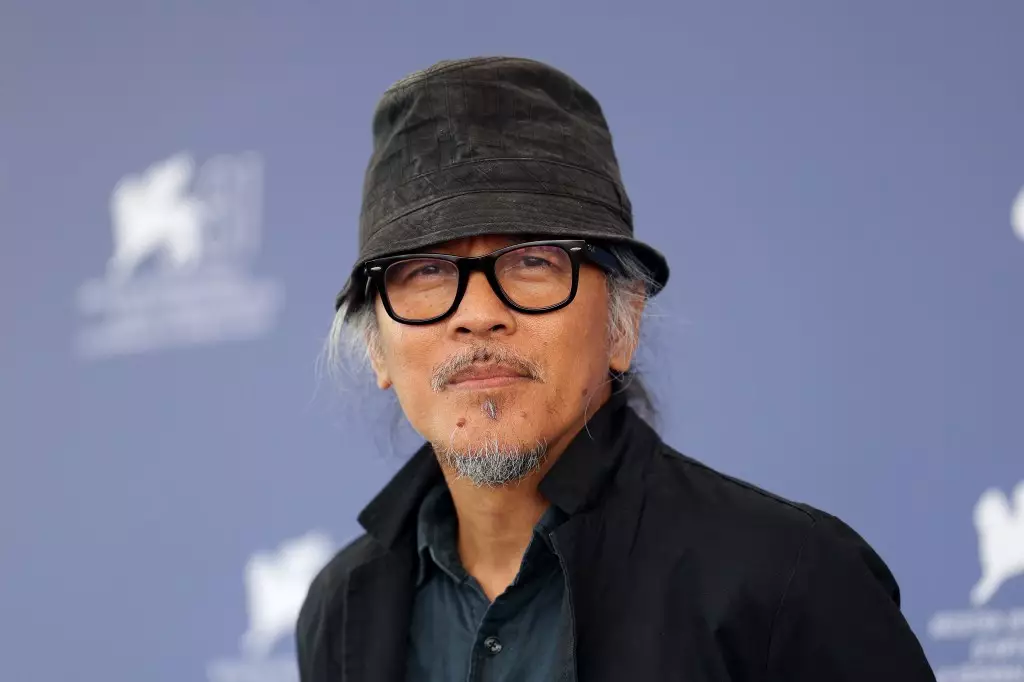Filmmaking, particularly in the realm of independent cinema, often resembles a long and arduous voyage—one fraught with challenges but also replete with moments of beauty and discovery. Filipino director Lav Diaz encapsulates this experience in his upcoming feature, *Beatrice, The Wife*, which stars the talented Gael García Bernal as the iconic Portuguese explorer Ferdinand Magellan. As Diaz prepares a shorter version of the film for potential screening at the prestigious Cannes Film Festival, enthusiasts anticipate not just the aesthetic vision he embodies but the very soul that drives his storytelling.
Shortened, Yet Striking
Interestingly, Diaz has crafted a two hour and forty-five minute cut, a significant departure from his initial vision of a staggering nine-hour epic. In an industry often preoccupied with brevity and marketability, this choice underlines Diaz’s resolute commitment to narrative depth. It’s refreshing to see a director prioritize intricate storytelling over commercial viability. By distilling his expansive vision into a more digestible format, Diaz navigates the tricky waters of film festivals where audiences might be more receptive to less exhaustive, yet still poignant experiences.
Moreover, the anticipation surrounding *Beatrice* serves as a testament to Diaz’s unique voice in the cinematic landscape. Although the director has hinted at aiming for Cannes, the uncertainty surrounding festival selections showcases a familiar reality within the film industry: the unpredictability of critical reception.
The Backstory: A Struggle for Survival
Upon delving into the film’s narrative, audiences will follow Beatrice Barbosa de Magallanes, who embodies the resilience and fierce protective instinct of a mother, grappling with the dual pressures of family safety and the grandiosity of her husband’s maritime ambitions. This juxtaposition offers a rich exploration of personal and historical realms, especially in how Diaz crafts female narratives within his predominantly male-centered historical contexts. The film’s synopsis unfolds a tale of survival against the backdrop of colonial exploration, raising questions of agency, cultural identity, and the broader implications of such expeditions.
In a world increasingly aware of the complexities surrounding historical narratives, Diaz’s choice to shed light on Beatrice’s perspective operates not only as a story of personal endurance but also as a challenge to the traditional narratives that have long been dominated by male protagonists.
A Waiting Game: Festival Landscapes
As the Cannes Film Festival prepares to announce its lineup, the excitement surrounding Diaz’s *Beatrice* highlights the intricate dance between filmmakers and festival curators. Diaz’s track record, including his previous work *Phantosmia* and *Norte, the End of History*, portrays a directorial path characterized by insightful themes and bold storytelling choices. His consistent presence at notable festivals signals a recognition of the profound artistic contributions he makes to cinema, and it is this reputation that sets such high expectations for his latest endeavor.
Though faced with the relentless cycle of anticipation, producers, and fans alike are reminded of the inherent uncertainty in the film industry’s festival circuit. The forthcoming announcements in Paris promise to reveal not just the presence of *Beatrice* but also the shifting landscape of independent cinema, where directors like Lav Diaz continue to redefine the standards of narrative complexity and thematic richness.
As the world awaits the official festival selections, the cultural conversation ignited by Diaz’s work is already in motion, urging audiences to consider the stories yet to be told, the perspectives yet to be recognized, and ultimately, the beauty of the filmic journey itself.
